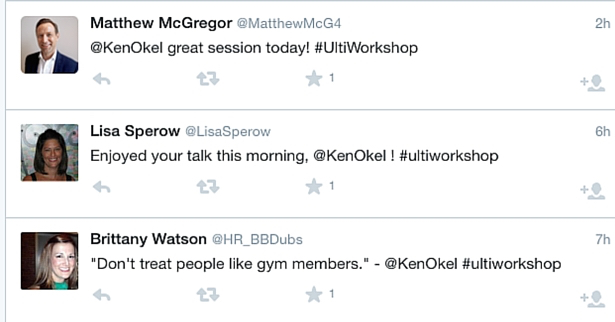 While many are frustrated by jobs that don’t allow them to disconnect at the end of the day, they’re not sure how to stop non-work hours email and text messages. These are the kind of messages that are not urgent but come with an implication that you need to respond.
While many are frustrated by jobs that don’t allow them to disconnect at the end of the day, they’re not sure how to stop non-work hours email and text messages. These are the kind of messages that are not urgent but come with an implication that you need to respond.
Some politicians in New York City believe they have the answer. A proposed bill would make it unlawful for employers there to require employees to check and respond to email and other electronic communications during non-work hours. This would apply to private businesses with ten or more employees.
While the proposal wouldn’t stop your boss from sending you a non-work hours email, you could not be punished if you didn’t reply. If that did happen, then the employer could be fined $250 for every violation.
It will be interesting to see what happens in this case but I’m not sure the government can come up with a one size fits all solution to this workplace problem.
We do know it’s a serious issue, as the feeling of being tethered to a job leads to stress, which leads to a lower level of employee engagement (See this Gallop survey for more).
Email use is one of the least discussed parts of a job. New employee orientations typically spend more time talking about employee kitchen cleanliness issues, rather than organizational communication policies.
People are expected to guess when it comes to using email or text messaging. Wouldn’t it be better to create an after hours messaging policy? I’ve found these steps can lead an increase in productivity and a decrease in work related misery:
Meet and Agree
This is an important step where your leadership and their teams must define the expectations for after hours availability and responsiveness. Don’t put off this meeting. Everyone should come to the table for the discussion and agree to follow the policy that emerges.
Define Urgent
There’s a difference between needing urgent help and sending a question or a request that is not time sensitive. Unexpected needs may come up. How can urgent issues be immediately addressed, without the system being abused?
If the ability to get immediate responses to urgent needs is important, then the compensation of those who are expected to respond should be increased. If paying more to someone for increased availability makes you nervous, then maybe you shouldn’t reach out after hours.
Plug Out/Plug In
Do you want to take things a little further and have defined times when people have to step away from work? For instance, do you want regular shift employees to be working from 8 p.m. to 6 a.m?
Is that output really helping your organization or is it an advanced warning of burnout?
Share and Share Some More
Your communication rules need to be known by your employees. Verbally share them across the organization. Make them readily available for review. They can’t be kept in a dusty drawer or a hard to find computer file.
Make your policy a permanent and understood part of your work culture. Don’t let frustration over non-work hours email define your organization.






